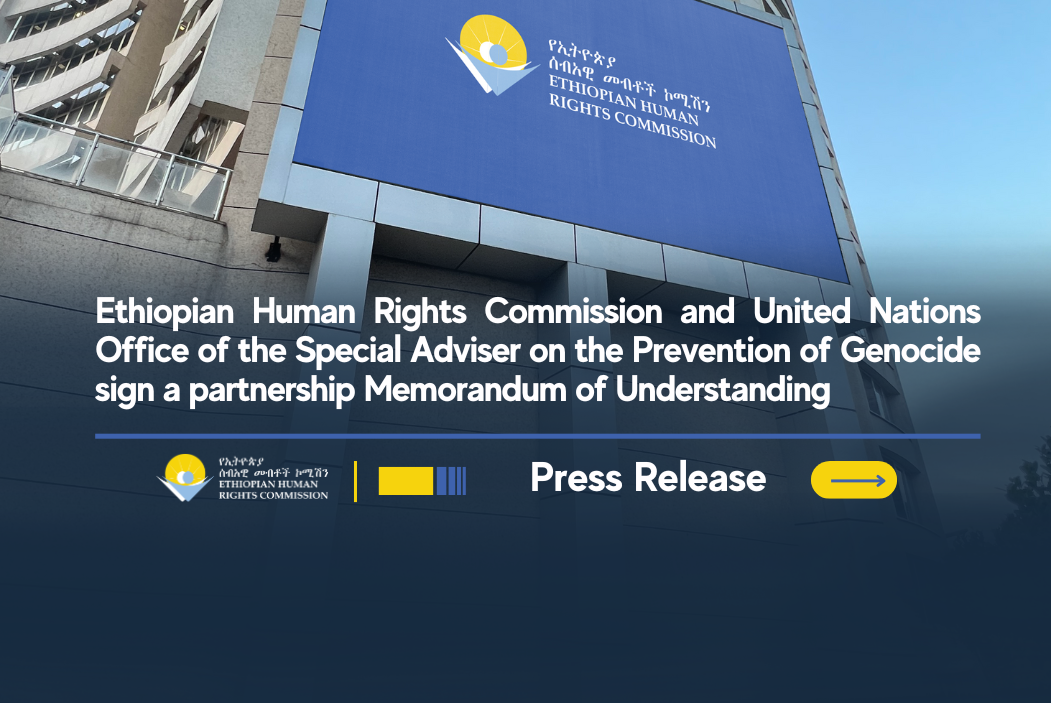The Ethiopian Human Rights Commission (EHRC) and the United Nations Office of the Special Adviser on the Prevention of Genocide (OSAPG) have signed a landmark agreement to enhance their collaboration in preventing genocide and other serious international crimes in Ethiopia, the region and globally. The agreement also marks a significant advancement in global efforts to address and counter hate speech, which is instrumental in mitigating the risk and preventing the commission of such crimes.
“Partnerships with Independent National Human Rights Institutions (NHRIs) represent a crucial step in our ongoing efforts to prevent genocide, war crimes and crimes against humanity,” stressed the UN Under-Secretary-General and Special Adviser on the Prevention of Genocide, Ms. Alice Wairimu Nderitu. “This is why this agreement is so important. By combining the UN’s global reach with EHRC’s in-depth national expertise and its global standing as an “A” status NHRI accredited by the Global Alliance of National Human Rights Institutions (GANHRI), we strengthen our ability to identify and respond to early warning signs of genocide and other serious international crimes, as well as to design and implement effective and sustainable preventative action.”
“The agreement highlights the complementary nature of the respective mandates of the two institutions in the promotion and protection of human rights, including the prevention of grave human rights violations through proactive measures,” stated Rakeb Messele, Acting Chief Commissioner of EHRC. She also underlined that the partnership will focus on proactive measures and areas of collaboration aimed at preventing grave human rights violations, including the design and implementation of a comprehensive national framework strategy for analysis and prevention of atrocity crimes, as well as the development of a national plan of action to address hate speech.
The Acting Chief Commissioner also emphasized that the partnership reinforces EHRC’s commitment to work with regional and international human rights bodies and mechanisms to which Ethiopia is a party. The agreement is expected to enhance the ability of the two institutions to identify and respond to early warning signs of genocide and other serious international crimes, as well as to design and implement effective and sustainable preventative action.
